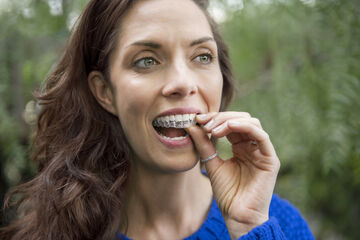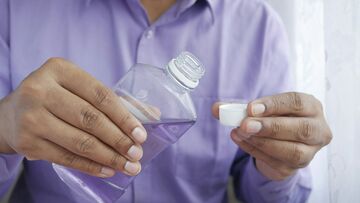
Bad breath will affect most people at some point during their life, it can be a temporary problem or more persistent. It can affect not only how you feel about yourself but how others perceive you.
Here at Leigh Dental Centre our team has come up with their 5 top tips to improve bad breath
1. Brush and clean interdentally more often
Plaque that forms on your teeth, provides the ideal home for bacteria that causes bad breath. Food trapped between teeth can further exacerbate the problem.
We all know we should be brushing our teeth twice a day and using interdental cleaning aids daily. But if you are concerned about your breath, do both a little more often.
Be careful though, it is important that you brush effectively and not harder, or else you can end up causing toothbrush abrasion, wearing down the enamel on your teeth and making them more susceptible to decay.
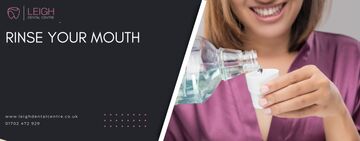
2. Rinse your mouth
Using an antibacterial mouthwash can freshen your breath and help to reduce the bacteria responsible for causing bad breath. Mouthwash should be used at an alternative time to brushing or else you will wash away the fluoride in your toothpaste which is needed to help keep your teeth healthy in the long term. It is best to use mouthwash just before you go to bed at night as this will give the active ingredients all night to work on your teeth and gums.
3. Chew sugar-free gum
Chewing gum helps to stimulate saliva which is the mouth’s natural defence mechanism against plaque acids as it helps to neutralise the pH level of your mouth, saliva also helps to remove food particles stuck on your teeth, which cause tooth decay and bad breath. You can also swish your mouth with water after you eat, to help remove any food particles that may get stuck to your teeth. This however cannot be used as a substitute for a good oral hygiene routine..
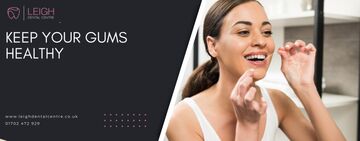
4. Keep your gums healthy
Gum disease causes bad breath. Bacteria gather in pockets at the base of teeth, emitting an unpleasant odour.
The first sign of gum disease is bleeding gums when you brush. Should you notice this, book an appointment with your dentist so they can assess the health of your teeth and gums. They may advise that you visit a hygienist who will be able to clean and scale and polish your teeth. They will also be able to advise you on the correct oral hygiene routine to follow at home.

5. Quit smoking
Besides causing cancer, smoking is terrible for your oral health, it can damage your gums, stain your teeth and give you bad breath. Tobacco causes its own form of bad breath as smoke particles can linger in a smoker’s lungs for hours leading to a stale scent often associated with the smoker’s breath.
Smoking also reduces the amount of saliva present in the mouth, increasing the risk of tooth decay and gum disease.
The only way to prevent this is to ditch the cigarettes for good. If you would like help and advice on quitting smoking please ask one of the team at Leigh Dental Centre and they will be happy to assist you.
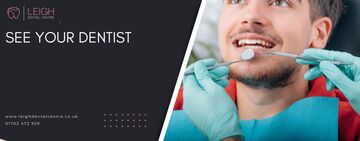
6. See your dentist
If after all this you still feel you are experiencing bad breath, book an appointment with your dentist as they will be able to examine your mouth, teeth and gums to determine if there is any medical cause of your bad breath.
Your dentist will advise you as to how often you should attend routine dental examinations. Your dentist will be able to monitor your teeth enabling any problems to be picked up early and effectively treated and they will also be able to refer you to the hygienist for a thorough scale and polish to remove the plaque and calculus which can build up on teeth and provide a safe haven for bacteria to thrive.
If you find that you are experiencing persistent bad breath talk to your dentist at your next appointment and they will be able to complete a full and detailed examination to determine if there are any underlying causes that may require treatment.
If you are concerned at all by bad breath, do not hesitate to call the surgery on 01702 472929 and book a consultation appointment so one of our team can get to the root of the problem.
Contact us to make an appointment
Exclusive Offer
Airflow stain removal from our hygienist
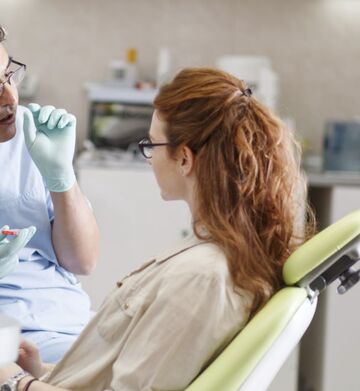
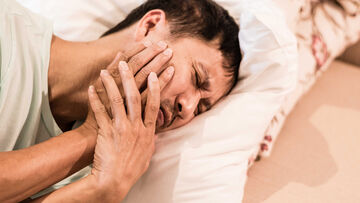
How can Botox be used to treat bruxism?
15.11.2023
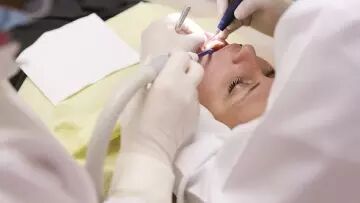
Replacement for a Missing Tooth
04.11.2023
Time for you perfect smile?
Book your consultation today
When visiting our practice you know you are visiting the dental professionals trained to the highest standards. You are greeted by our welcoming staff, who share the same aim, to make your visit with us as comfortable and stress free as possible.
